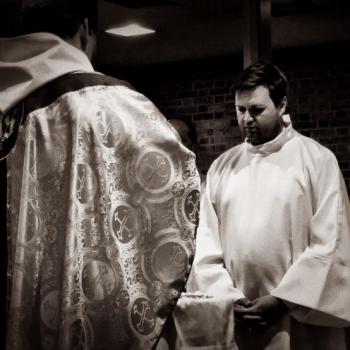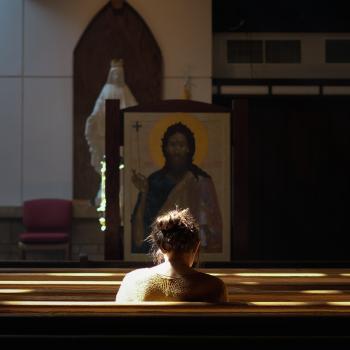
From Detroit Catholic:
New research from a Sacred Heart Major Seminary adjunct instructor suggests today’s unbaptized young adults are encountering the Catholic faith in a different way than their parents and grandparents did — and not how some would expect.
Tamra Hull Fromm, Ph.D., who has taught theology at Sacred Heart and is director of discipleship and an instructor for the Catholic Biblical School of Michigan, shared the findings of her recent doctoral dissertation with Detroit Catholic, research she says could change the conversation about evangelizing the growing group of young religious “nones” — those who do not profess any religious belief — in modern society.
Previous research has examined the religious beliefs of teenagers and college students who have left their Christian faith, Hull Fromm said, but relatively little research had been done studying why young adults raised with no faith at all would convert.
To complete her research, Hull Fromm interviewed 24 young adults who had been recently baptized into the Catholic faith in the Archdiocese of Detroit.
Many American young adults “have been negatively predisposed to the proclamation of the kerygma or Gospel message because of specific characteristics of postmodernity and American culture,” Hull Fromm said in an abstract from her study, A New Paradigm for Pre-Evangelization for American Young Adults, which she completed while pursuing her doctoral degree through the Maryvale Institute/Liverpool Hope University in Birmingham, England.
In other words, it’s more difficult for today’s unchurched young people to respond to the basic message of salvation, given that society actively discourages it.
Hull Fromm found that instead of relying on the culture or the institutional Church to transmit the message of the Gospel, young adults who choose to enter the Catholic Church today are doing so because of much more personal reasons.
“The raw data supports the premise that the initial encounter and conversation occurs in a secular setting with a layperson (family or friend) as witness,” Hull Fromm wrote. “The witness who authentically practices the faith in a non-judgmental manner, engages in relational conversation, and responds to questions acts as both antidote” to such predisposal against religion and “accompagnateur,” or guide, on that person’s journey to the faith.












